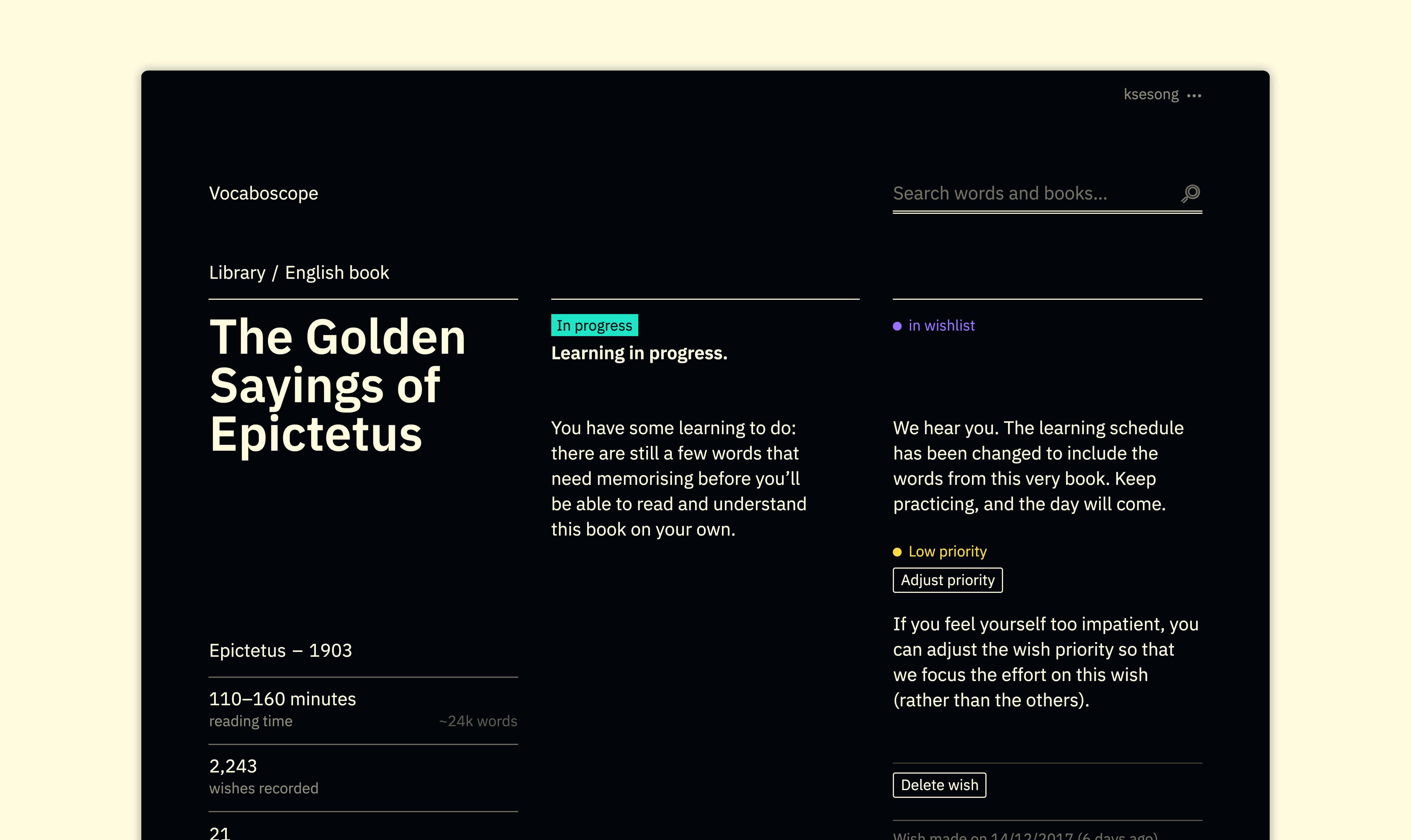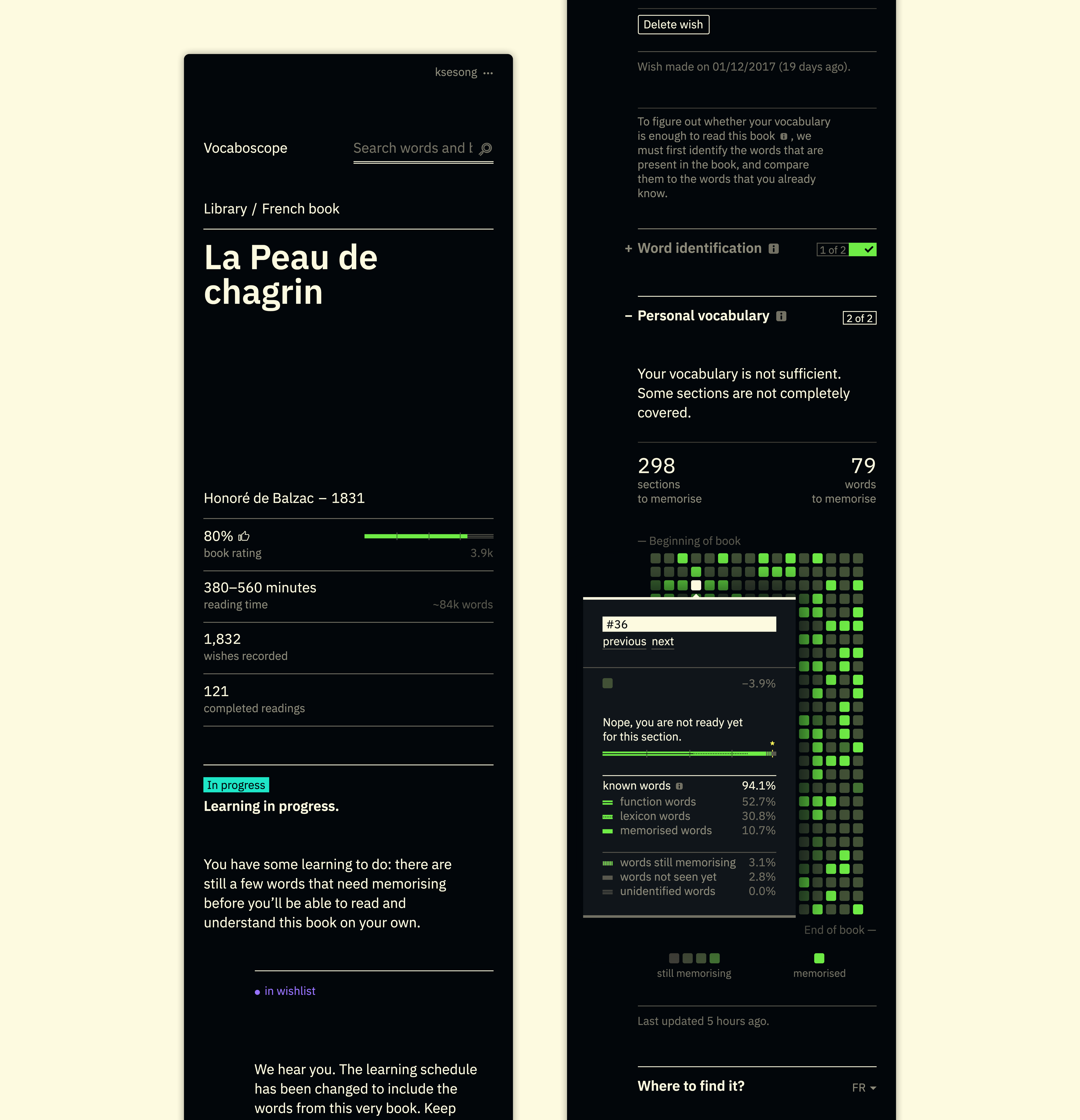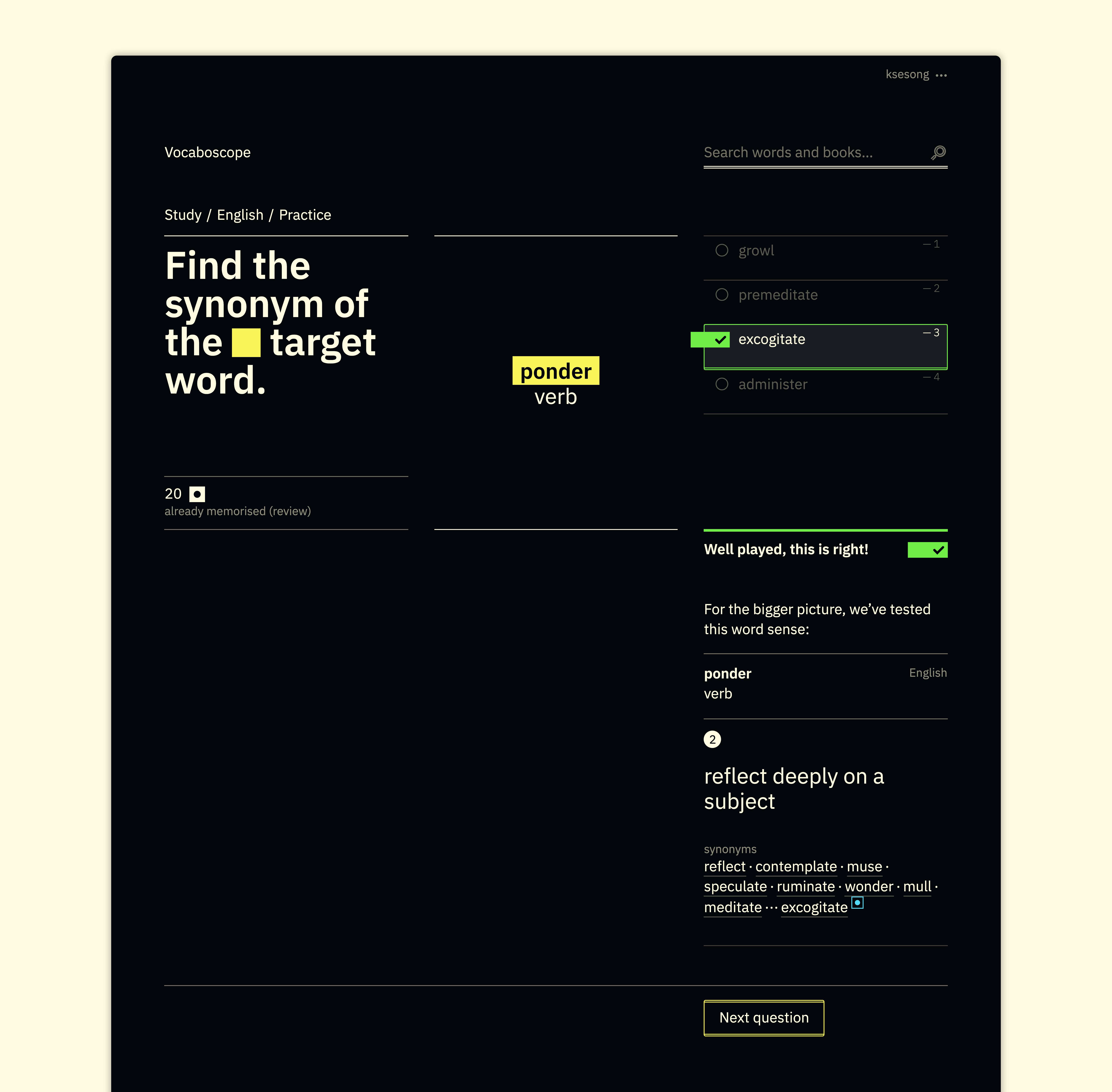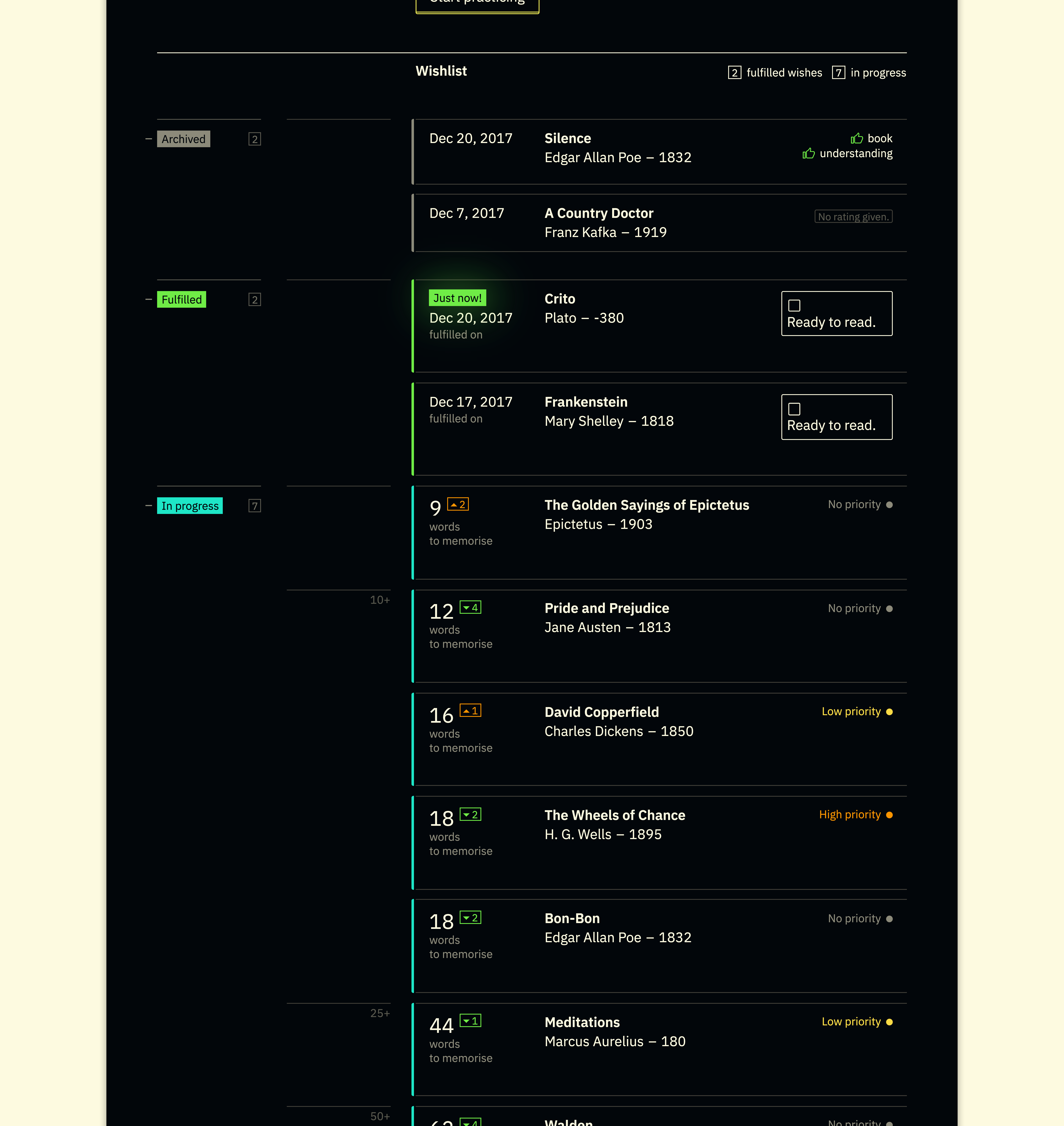Korn Seang Edouard Song imagines, designs and creates tools as artistic expressions of potential futures.
Vocaboscope
A vocabulary-learning platform driven by the learners’ own reading wishes, led by personal ambition and tangible achievements, against standardised and artificial rewards.

2015–18
Digital application
Learning a foreign language is a tortuous and exacting adventure often made bearable by a few prospects: holding conversations, understanding the news, reading books or watching movies in their original language…
The balance shifts when these long-term motivations are supplanted by short-term desires (solving harder exercises, getting better grades, reaching the next level…), when the learner effort and achievements are defined lonely in reference to the course (or the learning application), undermining any aspiration the learner may initially have.
Vocaboscope is a vocabulary trainer driven by the learner reading wishes.
Vocaboscope sees the vocabulary contained within books (or movies). It can then, for any given book, compare this collection of words with people’s own lexicon and assess whether their vocabulary is sufficient to ensure a smooth and autonomous reading.

Comparing a learner lexicon with the vocabulary contained in a book, concluding that the learner is unprepared for an autonomous reading.
More, learners are prompted to make reading wishes: say, one wants to read Victor Hugo’s ‘Les Misérables’ in French, but they know their vocabulary is currently lacking. In this case, Vocaboscope will help them fulfil this and any other wish, by setting up vocabulary training sessions with the objective of memorising the required words to meet the associated thresholds 1.
- 1
An evaluation can also be carried out to (conservatively) estimate a learner vocabulary level, to avoid spending time learning words that were already mastered.

Memorising vocabulary through exercises designed to satisfy the wishlist.
These practice sessions are entirely personalised: the exercises tackle the very words that appear in the transcript of the wished books (or movies), and account for the learner actual proficiency (a higher familiarity means more difficult questions). These activities are also scheduled following a spaced-repetition algorithm to optimise memorisation efficiency 2.
- 2
The lapse of time between reviews of the same word depends on the performance of past questions: a word will be reviewed more often if a student struggles with it.
Once enough words have been assimilated for a given book, the parent wish is set as fulfilled, and the learner is notified. It is now time for action, time to step back from Vocaboscope and interact directly with the book. Learners’ hard work and effort are at the service of their own wishes.
Vocaboscope makes people more confident and ambitious about their abilities when learning a language, encouraging them to have direct interactions with original books and movies.
Wishes are mandatory. No wish, no word to memorize, no learning; this means that learners must give themselves a motivation to study, they must make wishes before using Vocaboscope. It does not matter whether these hopes are accessible or wild, wishes will be fulfilled without exception: it is simply a question of practice and time. There is no condition, no uncertainty, no magic. If they are willing to commit enough energy to learn some vocabulary, they will be able to read their wished books at some point in the future.

Wishes arranged in a calendar-like format, from wishes in progress, to fulfilled wishes (shown as to-do tasks).
So, when every book, even the most cryptic ones, seems reachable through practice, the entire world becomes a catalogue of opportunities waiting to be explored. Fulfilled wishes generate new ambitions, more and more words get memorised, and Vocaboscope becomes more and more secondary.